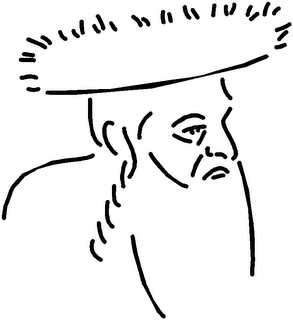 How do you define 'want'? Can we have enough introspection to know what we truly want? Does our desire for certain possessions and experiences and knowledge have purely neurobiological underpinnings that we are unaware of consciously, and when we do become aware of them we construct post-hoc explanations which sound logical but are really just-so stories we tell ourselves in order to cover up the fact that we are utterly clueless of what compels and motivates us?
How do you define 'want'? Can we have enough introspection to know what we truly want? Does our desire for certain possessions and experiences and knowledge have purely neurobiological underpinnings that we are unaware of consciously, and when we do become aware of them we construct post-hoc explanations which sound logical but are really just-so stories we tell ourselves in order to cover up the fact that we are utterly clueless of what compels and motivates us?Whenever I have this question -- 'What do you want?'-- put to me I readily admit that it is a very difficult one to answer. I can enumerate a long list of my desires, but I'm unsure if that actually answers the damned question. What does a simple list of what I wish for and dream about say about what I truly want? If I want to eat chocolate can I also 'want' to lose weight? If I want to jog every morning is it possible that I want to sleep in? If I want to have varied sexual experiences is it true that I don't want to hurt anyone? Can I want to finish an advanced degree and want more leisure time and want to write on my blog and not want to put in the necessary work and want to tell people "fuck off" and pity them and want to be kind, even while I know all these are clearly contradictory? Is wanting something the same thing as desiring that thing? Is desire the same as obsession?
The field of neuropsychology attempts to answer some of these questions and illuminate how we explain our brain to ourselves, sometimes borrowing heavily from other fields such as conventional psychology, philosophy, sociology and even animal behavior. Studies on stroke patients unable to recognize there is such a thing as a left side nevertheless show they are unconsciously aware of what's going on that side, but being unaware of the reasons they 'know' certain things they construct elaborate tales of why things are as they are and why they say the things they do. These are often illogical and nonsensical to those of us consciously aware of the other side, but it is impossible to persuade them of the fallaciousness of their theories. The HM case also made some fascinating contributions to the field, as did the technology that allows for single-cell neuron imaging in some restricted cases.
However, the inferences are often muddled and the conclusions contradictory. I think nobody is bold enough to claim we can answer these puzzles with any precision as of now. We don't yet know what want is or how it is created or if we are conscious of what we want -- or even if we want what we want. Which is why I think the title of a recent New York Times Magazine piece (What Do Women Want?) that inspired the title of this post (and from where I shamelessly stole the picture) is hackneyed and silly, even while I think the content is intriguing and illuminating of human psychology as a whole. And I would bet the lickerish illustrations accompanying the piece is a consequence of someone betting this is What Men Want. Additionally, the dichotomy of the title of the piece and the keyword used in the name of the web page (see link) also gives us something to ponder. But most interesting is what the article says about human desire and about what we want, and the dichotomy -- or is it? -- between the two.
I should note that this post is entirely a filler for a single word. Now imagine if I tried to write filler for a whole sentence? I'd have to fill a book with fascinating stories before being able to construct the sentence I wanted. Seriously though, I've always found words intriguing in general and I find that word play in particular captivates my attention. And the way words mean different things in different contexts and idioms sometimes don't even make sense is something that is fascinating to observe. (This, too, is being studied in certain branches of neuroscience.) For example, I always fight the urge to answer the question "how are you?" as if it really means what the words imply: with a detailed explanation of the biological molecules and organ systems that explain "how" I am. How else can I be? To me, how something is translates into a question about how it works. Another example: why are dirty pictures called that when in reality the people in them or often at their most clean, having just showered or bathed? And why...... oh, I can go on and on, but I ran out of time.




|